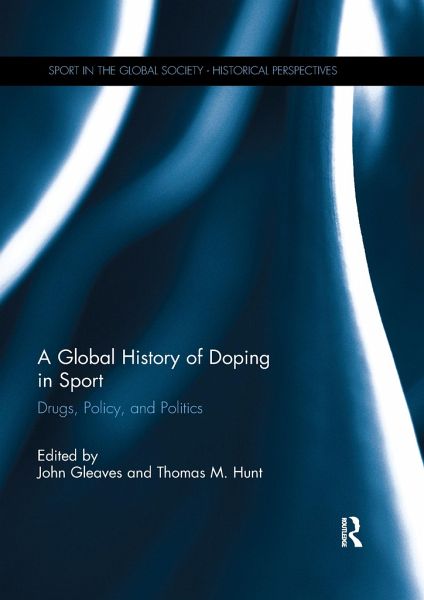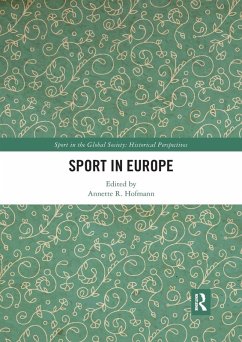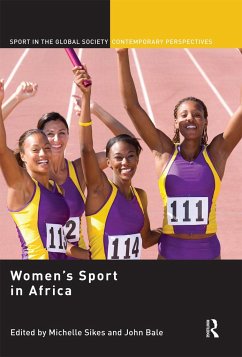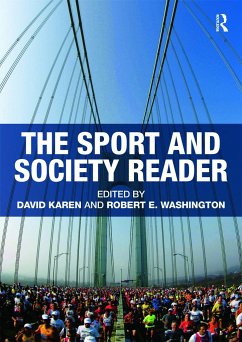
A Global History of Doping in Sport
Drugs, Policy, and Politics
Herausgeber: Gleaves, John; Hunt, Thomas

PAYBACK Punkte
28 °P sammeln!
From turn-of-the-century horseracing to the monolithic anti-doping attitudes now supported by sporting organizations, the development of anti-doping ideology has spread throughout modern sport. Yet heretofore few historians have explored the many ways that international sport has responded to doping. This book seeks to fill that gap by examining different aspects of sport's global efforts to respond to athletes doping. By incorporating cultural, political, and feminist histories that examine international responses to doping, this special issue aims to better articulate the narrative of doping...
From turn-of-the-century horseracing to the monolithic anti-doping attitudes now supported by sporting organizations, the development of anti-doping ideology has spread throughout modern sport. Yet heretofore few historians have explored the many ways that international sport has responded to doping. This book seeks to fill that gap by examining different aspects of sport's global efforts to respond to athletes doping. By incorporating cultural, political, and feminist histories that examine international responses to doping, this special issue aims to better articulate the narrative of doping. The work starts with the first mention of doping in any sport. It examines not only the first efforts to ban doping but also the athletes who sought performance enhancers. Focusing on specific framing events, authors in this issue examine how history of doping and how it has indelibly marked the sporting landscape. The result is a work with both breadth and focus. From stories of Japanese swimmers to Italian runners to American jockeys, the work spans the range of doping history. At the same time, the authors remain focused around one single issue: the history of doping in sport. This bookw as published as a special issue of the International Journal of the History of Sport.














